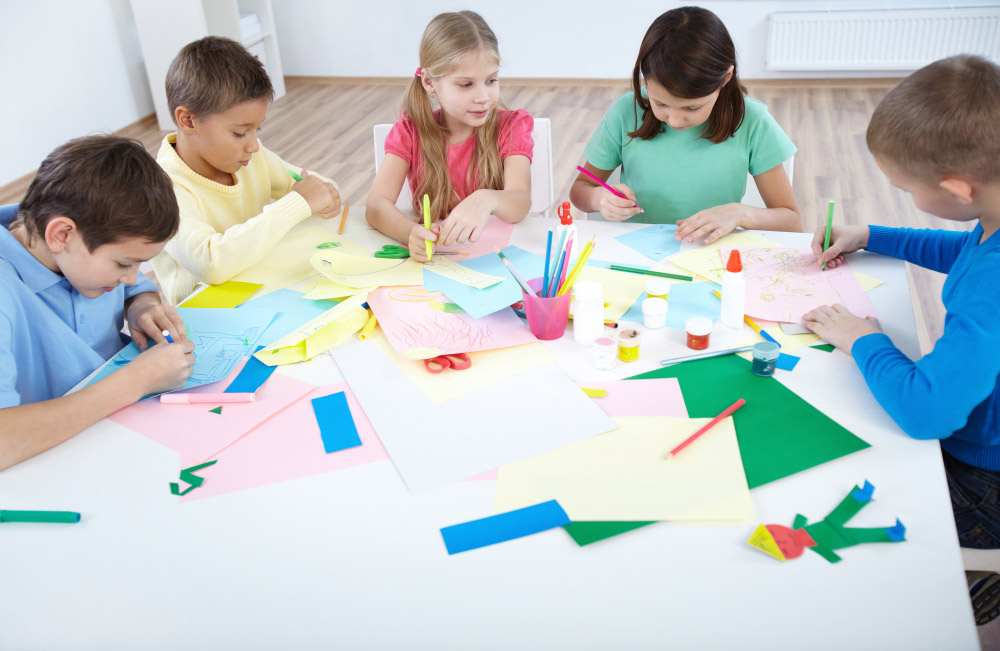
Critical thinking is a valuable skill for children that helps them analyze, reason, and decide independently. It's not just about excelling in academics—it's a lifelong skill that fosters creativity, problem-solving, and adaptability.
But how can parents and educators encourage this skill naturally and engagingly for kids?
This article will explore the practical strategies you can use to encourage critical thinking in children and ensure they grow into confident and capable individuals. You'll find actionable tips, relatable examples, and research-backed insights to guide you.
What Is Critical Thinking?
Critical thinking means looking beyond the obvious. It's the ability to evaluate facts, question assumptions, and draw reasoned conclusions. For children, this skill begins with curiosity—asking "why," "what if," and "how."
For example, when a child wonders, "Why do leaves change color in the fall?" they engage in the early stages of critical thinking. Instead of just answering, guiding them to think through the possibilities nurtures their reasoning abilities.

Benefits of Critical Thinking for Children
Critical thinking isn't just about solving puzzles or acing logic games—it profoundly impacts a child's ability to navigate life, both academically and socially.
This skill strengthens their problem-solving abilities, empathy, and decision-making processes from the classroom to the playground and beyond. Let's explore some of the most significant benefits:
1. Better Decision-Making
Critical thinking helps children evaluate situations thoughtfully rather than jumping to conclusions. Rather than rushing into decisions, they develop the habit of carefully weighing the advantages and disadvantages of their choices.
For example, suppose your child decides how to spend the weekend. In that case, they might consider the benefits of going to the park (fresh air and exercise) versus staying home to play video games (relaxation and fun). This evaluation process helps them develop sound reasoning skills to serve them throughout life.
In a Real-Life Scenario, a parent shared how their 10-year-old began applying critical thinking to minor decisions, like choosing which extracurricular activities to pursue. By considering factors like their interests, time commitment, and goals, the child became more confident in making decisions independently.
2. Stronger Academic Skills
Critical thinking fosters problem-solving across various subjects in the classroom. Math enables children to analyze complex problems and find creative solutions. Science encourages curiosity, helping kids ask meaningful questions and seek evidence-based answers.
Reading comprehension also benefits children as they learn to infer meaning, identify themes, and evaluate characters' actions in stories.
According to research published in the Journal of Cognitive Development, students who engage in critical thinking activities regularly outperform their peers by 15–20% on problem-solving assessments. This advantage spans subjects, proving that critical thinking isn't limited to a single domain but boosts overall cognitive ability.
3. Improved Social Interaction
Critical thinking also enhances a child's emotional intelligence by teaching them to see situations from different perspectives. This skill helps children understand their peers' feelings and motivations, leading to stronger friendships and conflict resolution.
For instance, if a disagreement arises during a group activity, a child with critical thinking skills might ask questions to understand each person's viewpoint before proposing a fair solution.
Empathy nurtured through critical thinking prepares children for meaningful relationships and collaborative teamwork in school and later careers.
4. Long-Term Confidence and Independence
When children think critically, they feel empowered. They know how to tackle problems, analyze situations, and make informed choices, which builds confidence and a sense of independence.
Imagine a teenager choosing between two colleges. A child with critical thinking skills will evaluate factors like academic programs, campus environment, and financial considerations before deciding. This process boosts their confidence in their ability to make significant life choices.
Why It Matters
The benefits of critical thinking go far beyond academics. It's a skill that influences every aspect of a child's development—socially, emotionally, and intellectually. By fostering critical thinking, you're not just preparing your child to ace tests; you're equipping them with tools to thrive in life's challenges, build meaningful relationships, and make thoughtful, informed decisions.
Whether it's solving a math problem, navigating a tricky friendship, or planning their future, critical thinking gives children the confidence and ability to handle the complexities of life with grace and intelligence.
Why Is Critical Thinking Important for Child Development?
Critical thinking helps kids become independent learners and thinkers. Instead of relying solely on instructions, they learn to navigate challenges independently.
It also prepares them for the future. As the world evolves, the ability to adapt, question, and innovate becomes increasingly valuable. According to the BLS (Bureau of Labor Statistics), jobs that require creative problem-solving are estimated to grow by 8% in the next 10 years.
But critical thinking isn't just about future careers. It also builds confidence. Children who can think through problems feel more capable of handling life's complexities, whether solving a tricky homework problem or resolving a disagreement with a friend.

How to Develop Critical Thinking in Children
1. Encourage Curiosity Through Open-Ended Questions
Children are naturally curious; their endless "why" and "what if" questions are a window into their budding critical thinking skills. As a parent or educator, you can raise this curiosity by posing open-ended questions that don't have a single correct answer. This allows children to explore possibilities, think creatively, and reason through their responses.
-
"What do you think would happen if we lived underwater?"
-
"Why do you think stars twinkle at night?"
These questions stimulate the imagination and encourage children to connect ideas, fostering a habit of inquiry.
Incorporate thought-provoking questions into daily routines. During family meals or car rides, ask one open-ended question and listen attentively to your child's response. Over time, you'll notice how their answers become more nuanced and imaginative, showing their growing ability to think critically.
Open-ended questions teach children to think for themselves. They develop reasoning skills as they justify their answers and consider alternative viewpoints. This foundational practice lays the groundwork for higher-level thinking in academics and everyday life.
2. Introduce Problem-Solving Games
Games are one of the most effective tools for developing critical thinking because they combine fun with strategic challenges. Whether a classic board game or a puzzle app, these activities push children to think several steps ahead, analyze situations, and develop solutions.
-
Chess: Encourages planning, foresight, and logical thinking.
-
Sudoku: Develops pattern recognition and analytical reasoning.
-
Escape Rooms: Teach teamwork, time management, and creative problem-solving.
-
Puzzles: Improve spatial reasoning and focus.
A study published in Educational Innovations Quarterly found that children who played logic-based games consistently improved their analytical thinking skills by 20% within three months.
In a real-life experience, One parent shared how their weekly chess matches with their 8-year-old became more than just a game. They noticed their kids applying strategic thinking in real life, such as organizing their school assignments based on deadlines and difficulty. Plus, these sessions turned into a cherished bonding activity.
Why It Works:
Problem-solving games simulate real-world challenges in a low-stakes environment, allowing children to practice decision-making, persistence, and logical thinking in an enjoyable rather than forced way.
3. Real-Life Decision-Making Scenarios
Critical thinking thrives when children are given opportunities to make real-life decisions. These experiences teach them to analyze situations, consider consequences, and take responsibility for their choices.
For Examples:
-
Planning a Family Outing:
-
Give your child the responsibility of choosing between going to the park and watching a movie. Ask them to consider cost, weather, and everyone's preferences.
-
Managing an Allowance:
-
Let them decide how to spend their weekly allowance. Should they save for a more significant purchase or buy something small now? This encourages budgeting and delayed gratification.
When children participate in decision-making, they learn to weigh options and evaluate outcomes. For instance, if they choose an activity that doesn't go as planned, they'll reflect on what they could do differently next time.
Real-life scenarios prepare children for more significant adult decisions, such as managing finances, choosing careers, or resolving conflicts. They build confidence and self-reliance, knowing they can tackle challenges thoughtfully.
4. Promote Logical Reasoning Activities
Logical reasoning is a cornerstone of critical thinking. Activities that challenge children to identify patterns, make deductions, and solve problems can significantly enhance their ability to think critically.
For examples:
-
Riddles: Stimulate quick thinking and problem-solving.
-
Mazes: Encourage spatial awareness and decision-making.
-
Game: "What's Missing?" Arrange a few objects, let your child study them, and remove one while they're not looking. Ask them to identify the missing item and explain how they figured it out.
Logical reasoning builds pattern recognition, which is essential for math and science subjects. It also helps children approach problems methodically rather than relying on guesswork.
These activities teach children to think step-by-step, fostering patience and persistence. For example, solving a complex maze requires them to visualize the path mentally and adjust when they hit dead ends—skills directly transferable to real-world problem-solving.
5. Foster Creativity Through Brainstorming
Critical thinking isn't just about logic—it's also about creativity. Brainstorming exercises encourage children to think outside the box, explore unconventional ideas, and evaluate their feasibility.
Ask your child to invent a new type of transportation. Guide them to consider factors like:
-
How would it work?
-
What materials would it need?
-
Why would people want to use it?
According to the Child Creativity Lab, children who participated in regular brainstorming sessions showed a 15% increase in their ability to solve complex problems.
Brainstorming teaches children that there's rarely just one "correct" solution to a problem. It builds confidence in their creative abilities and encourages them to take risks in their thinking.
Incorporate brainstorming into everyday tasks. For example, if you're redecorating a room, ask your child for ideas on color schemes, furniture placement, or themes. This will engage them and reinforce the value of their input.
Common Barriers to Developing Critical Thinking
Despite its importance, several barriers can hinder a child's ability to think critically:
-
Over-Scheduling: Packed routines leave little room for exploration or creative thought.
-
Technology Overuse: Excessive screen time can limit opportunities for problem-solving.
-
Over-Guidance: Constantly providing answers discourages independent thinking.
Solution:
Balance structured activities with free play, limit screen time, and let children tackle age-appropriate challenges independently.
Expert Opinions and Research Insights
"Critical thinking isn't a single lesson or activity—a mindset cultivated over time through consistent practice and encouragement." - (Quote from Dr. Alice Morgan, Child Development Specialist)
According to the study, schools incorporating critical thinking into their curriculums report a 25% increase in student engagement and academic performance (Journal of Educational Psychology).
Real-Life Examples: Success Stories
Case Study 1:
A 12-year-old struggling with decision-making improved dramatically after their parents started assigning weekly planning tasks. By the end of three months, they confidently organized a family outing, considering logistics, budget, and preferences.
Case Study 2:
A teacher introduced daily riddles in class. Within a few weeks, students showed noticeable improvement in their logical thinking and attention to detail.
Conclusion:
Developing critical thinking isn't an overnight process—it's a journey. But with consistent encouragement, open-ended questions, and opportunities to solve real-world problems, you can help your child master this essential skill.
Start small. Ask one open-ended question today or introduce a simple logic game. Over time, these small efforts will compound, equipping your child with the tools to think independently and thrive.
FAQs
1. How can I teach my child to think critically at home?
Use open-ended questions, involve them in decision-making, and introduce logic-based games.
2. What are some suitable critical thinking activities?
Chess, puzzles, and brainstorming exercises are excellent for nurturing analytical skills.
3. Why is critical thinking important?
It helps children make thoughtful decisions, solve problems, and understand different perspectives.
4. At what age can children start learning critical thinking?
Even toddlers can engage in basic problem-solving through games and imaginative play.
5. How can technology be used to encourage critical thinking?
Educational apps and logic-based games can be valuable tools when used in moderation.
Critical Thinking Skills




